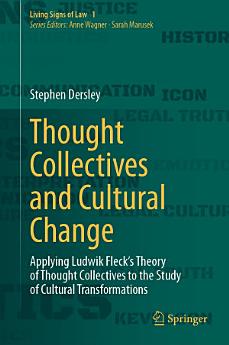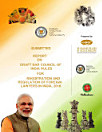Thought Collectives and Cultural Change: Applying Ludwik Fleck's Theory of Thought Collectives to the Study of Cultural Transformations
About this ebook
The central question addressed is how certain communities come to think in new ways – both in response to and contributing to cultural transformations. Such changes are fiercely contested – through censorship, exclusion, and institutional control. When Fleck’s concepts are enhanced by discourse analysis, these struggles can be revealed archaeologically, showing the layers of contestation beneath claims to neutrality and purity.
Tracing these conflicts from antiquity to modernity, this book examines how thought styles are marginalized, suppressed, or institutionalized. It examines the oligarchic thought style in Plato’s responses to cultural trauma and loss of control, follows the spread of the Socratic caesura through Cicero’s philosophia and Shaftesbury’s civic reactivation of Socrates, and analyzes its role in the German university system. There, following the exclusion of Hobbes and Spinoza, Bildung became philosophy’s means of asserting autonomy from theological control, culminating in Kant’s Conflict of the Faculties.
This book rejects single-determinant models of cultural change – economic, epistemic, discursive, or technological – while also challenging entrenched dichotomies such as myth vs. logos, Enlightenment vs. Counter-Enlightenment, and the public sphere vs. the state. Expanding on Fleck’s theory of thought styles, it develops an open epistemology that continuously reveals new dimensions of cultural facts and their institutional regulation.
The book offers a methodologically innovative framework for understanding cultural change. As such, it will be of interest to scholars of philosophy, intellectual history, discourse analysis, and the history of ideas, as well as those exploring the interplay of thought, power, and institutional authority.
About the author
Stephen Dersley is an independent scholar and language professional based in Poland. He received his MA in Philosophy from the University of Warwick in 1994 and has lived in Poland since 1997. For two decades, he worked as a teacher, teacher trainer, and academic manager, alongside a long-standing collaboration with Adam Mickiewicz University in Poznań as a translator and editor of academic texts—especially in legal theory, philosophy of law, and related fields across the humanities and social sciences. Between 2017 and 2022, he contributed several courses at the university while pursuing doctoral research, and was awarded his PhD in 2023. His research interests include the philosophy of culture, legal theory, the history of society and science, discourse analysis, and knowledge practices.







